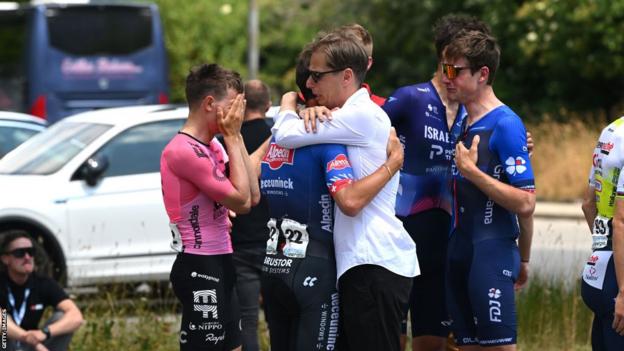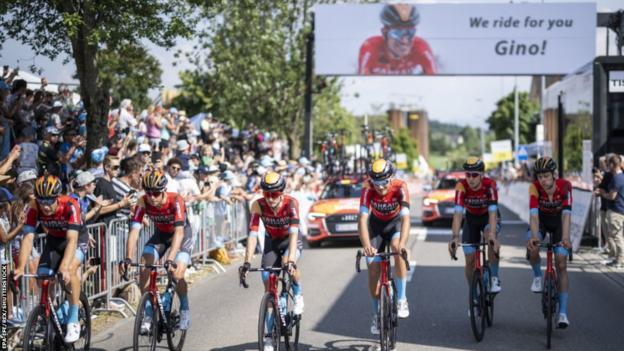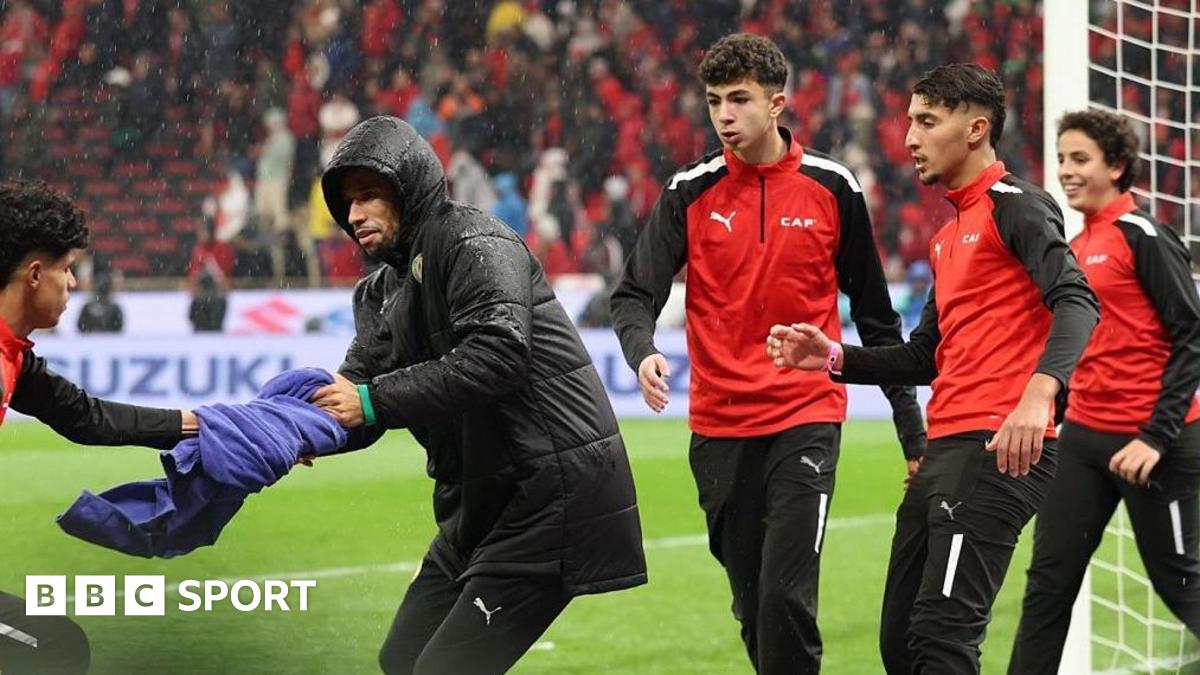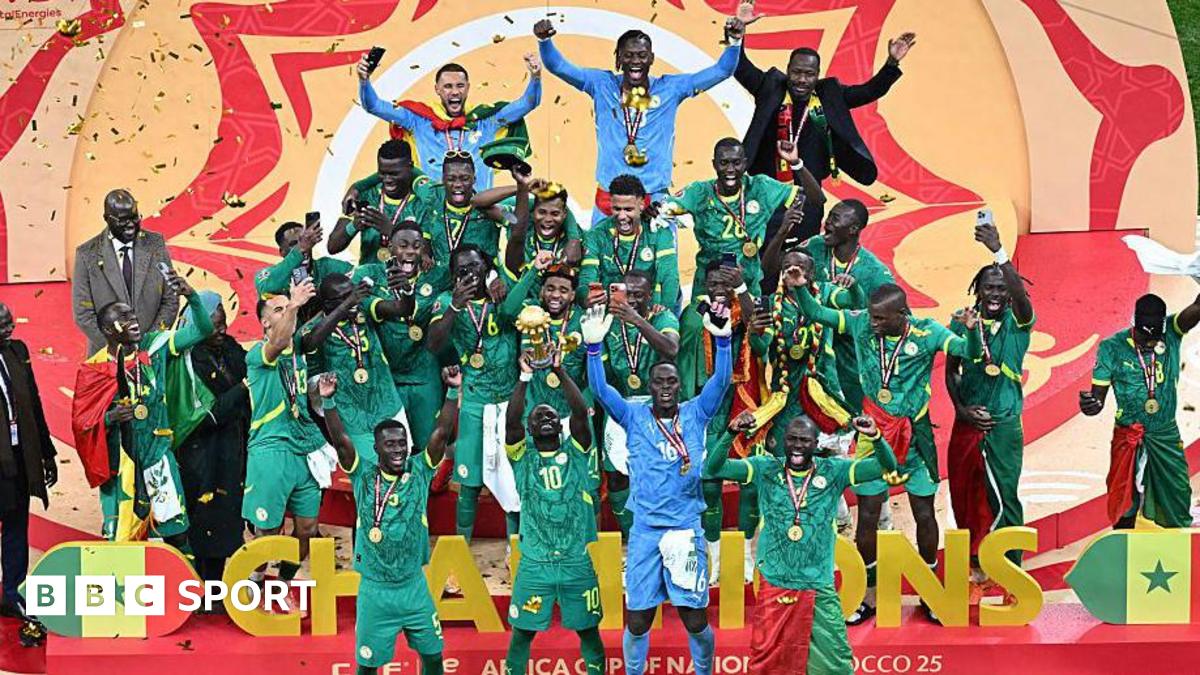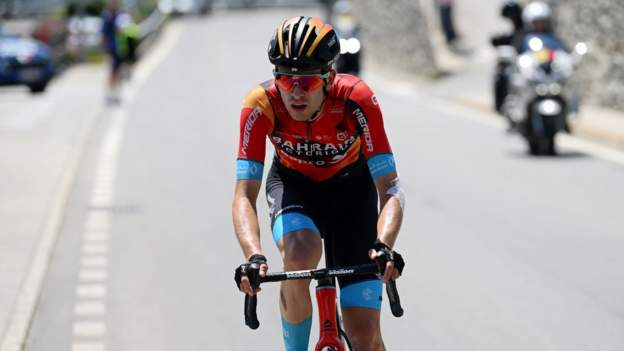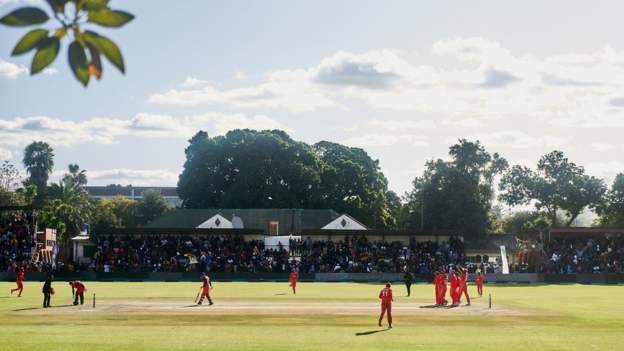Swiss cyclist Gino Mader has died at the age of 26 after crashing on stage five of the Tour de Suisse.
The Team Bahrain Victorious rider was involved in a high-speed crash with American Magnus Sheffield, 21, on Thursday on the descent of the Albula Pass and fell into a ravine.
He was resuscitated at the scene before being airlifted to hospital in Chur, but passed away on Friday morning.
Bahrain Victorious said Mader was “one of the shining lights of our team”.
Friday’s stage six was cancelled but the peloton rode the final 20km of the route neutralised in honour of Mader.
His mother Heidi received condolences from several riders, who wore black armbands, with many consoling one another before, during and after the ride.
“Gino was an extraordinary athlete, an example of determination, a valued member of our team and the whole cycling community,” Mader’s team said.
“His talent, dedication and passion for the sport has inspired us all.”
Team managing director Milan Erzen said: “Not only was he an extremely talented cyclist but a great person off the bike.
“Bahrain Victorious will race in his honour, keeping his memory on every road we race. We are determined to show the spirit and passion Gino displayed, and he will always remain an integral part of our team.”
The last high-profile rider death in similar circumstances at World Tour level was in 2011, when Belgium’s Wouter Weylandt crashed at the Giro d’Italia after descending at great speed and died soon afterwards from head injuries.
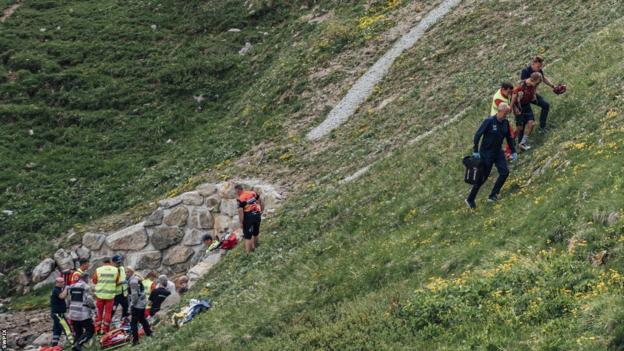
The UCI – cycling’s world governing body – said Mader was a “rising star”.
Tour de Suisse race director Olivier Senn said: “We’re heartbroken, the whole organisation, the teams and the riders.
“It is devastating what happened, really hard to put into words. We just stood together with all the teams and riders in memory of Gino and that’s all that counts for us at the moment.
“Gino was a fantastic rider and an excellent human, he was really a good person and he doesn’t deserve to leave the world like this.”
Ineos Grenadiers rider Sheffield was taken to hospital with a concussion and soft tissue damage.
Ineos said they were “heartbroken” by the news, adding: “Gino wasn’t just a hugely talented bike rider and great competitor, he was also an incredible person and a friend to many of us.
“His absence will be felt by everyone in the peloton and throughout our sport.”
Mader was a track cyclist before turning professional on the road in 2019 and joined Team Bahrain Victorious two years later.
In 2021, he won stage six of the Giro d’Italia and finished top of the young rider classification at the Vuelta a Espana.
After the conclusion of stage five, Soudal-Quickstep rider and road race world champion Remco Evenepoel expressed his concerns over the “dangerous descent” at the finish.
‘Your smile will forever be in our hearts’ – reaction
Following Mader’s death, the Giro d’Italia said his “smile will forever be in our hearts”, while UCI president David Lappartient said he was “deeply saddened” by the news, adding it was a “terrible blow” to the cycling community.
British rider Geraint Thomas, the 2018 Tour de France winner, said: “I can’t believe what I’m reading. Such a sad sad day. Thoughts with everyone who knew and loved Gino.”
The professional riders’ association the CPA added: “Our hearts bleed at this news. Condolences to his family, the team and the many friends who loved him.”
Thomas de Gendt – a five-time stage winner across the Tour de France, Giro d’Italia and Vuelta a Espana – said: “Again someone taken too soon. Feel sick reading this horrible news.”
Former world champion Alejandro Valverde said “there are no words” while 2023 Giro d’Italia winner Primoz Roglic said he was “speechless”.
‘Mader’s death must reopen debate into race descents’ – analysis
BBC Sport cycling reporter Matt Warwick
Gino Mader was a talented rider, whose ability to climb the highest peaks with the sport’s top athletes was much admired.
What will now be the crowning moment of a life and career cut so tragically short is his victory during the 2021 Giro d’Italia, on the climb to Ascoli Piceno, in which he beat 2019 Tour de France winner Egan Bernal among others.
But his death is a reminder that cycling is one of the most dangerous high-profile elite sports – it takes place on closed public roads with little or no protection for riders who are under pressure to make up time while descending off high mountain climbs.
Riders frequently surpass 100kph, as demonstrated by the race craft of Britain’s Tom Pidcock during last year’s Tour de France stage victory to Alpe d’Huez.
While descending is a big part of what makes professional road cycling so enthralling for its fans, Mader’s death must reopen debate into whether changes should be made to such a risky endeavour.
